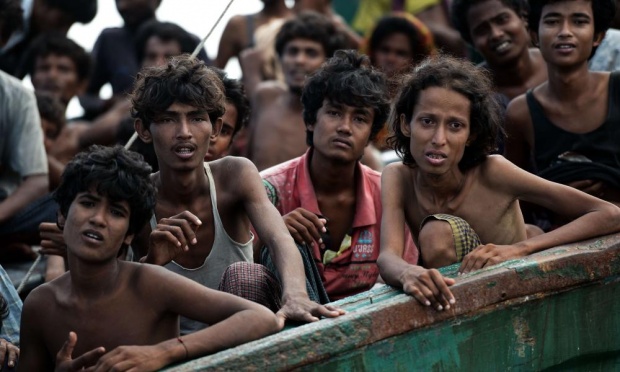Dar al- Ifta: “The hate crimes committed against Rohingya Muslims should not go unnoticed”

Dar al- Ifta vehemently condemns the heinous acts of discrimination and bigotry practiced against Rohingya Muslims who fled in boats to face death after being subject to severe persecution in Burma, “This hate crime against Rohingya Muslims should not go unnoticed”, said Ibrahim Negm, the Senior Advisor to the Grand Mufti. The issue of the Rohingya Muslims mounts to a systematic genocide and ethnic cleansing as they are facing severe persecution and are denied basic human rights in their country. All these activities are conducted under the supervision and blessings of the Burmese government. What makes things worse is that even when the Rohingya Muslims tried to escape from death in Burma and fled by boats to neighboring countries, they were denied access and were pushed back in international water to face hunger, thirst and ultimately death.
Dar al- Iftaa calls out on the international world to move and help the Rohingya Muslims to find safe shores and to host these persecuted migrants. This is an issue of human rights which are being violated in all possible ways and it would be a shame on all humanity to stand in silence against this tyranny and savagery of the Burmese government.
Indonesia, Malaysian and Thailand refused to host Rohingya migrants and pushed their boat to the international water in a shameful act of discrimination and Dar al- Ifta blames these countries for refusing to help out fellow human beings who are about to face death.
The Rohingya Muslims are a predominantly Muslim ethnic minority group. An estimated 800,000 Rohingyas live in Myanmar’s western Rakhine State; an additional million are scattered across Saudi Arabia, Bangladesh, Pakistan, Thailand, Malaysia and elsewhere. They are described by the United Nations as the most persecuted minorities in the world. More than 140,000 of Myanmar’s Rohingyas were pushed to dire displacement camps in 2012 amid regional conflicts. More than 120,000 have since fled the Myanmar/Bangladesh border to escape violence, persecution and economic hardship.
Myanmar is between 80 and 90 percent Buddhists and the Rohingya Muslims are facing all sorts of systematic persecution imaginable as they are subjected to dehumanizing hate speech, physical violence, segregation, dire living conditions, restrictions on movement, land confiscation, sexual violence, arbitrary detention, voting restrictions, loss of citizenship, extortion and countless other human rights violations.
The Government officials categorize the Rohingyas as “Bengali,” implying that they are in Myanmar illegally from neighboring Bangladesh. A 1982 law excludes Rohingyas from citizenship, leaving most stateless. Their ethnicity was left off last year’s landmark census.
The government has long denied Rohingyas access to basic public services, education and health care. Burdensome laws restrict their travel, marriage and childbearing rights, and the government has even blocked them from receiving humanitarian aid.
Thousands of migrants from Rohingya Muslims fled from persecution and sought refuge in other countries but their drama continued as those who fled by the sea faced systematic hunger and thirst as they were refused access to neighboring countries.
 Arabic
Arabic French
French Deutsch
Deutsch Urdu
Urdu Pashto
Pashto Swahili
Swahili Hausa
Hausa
